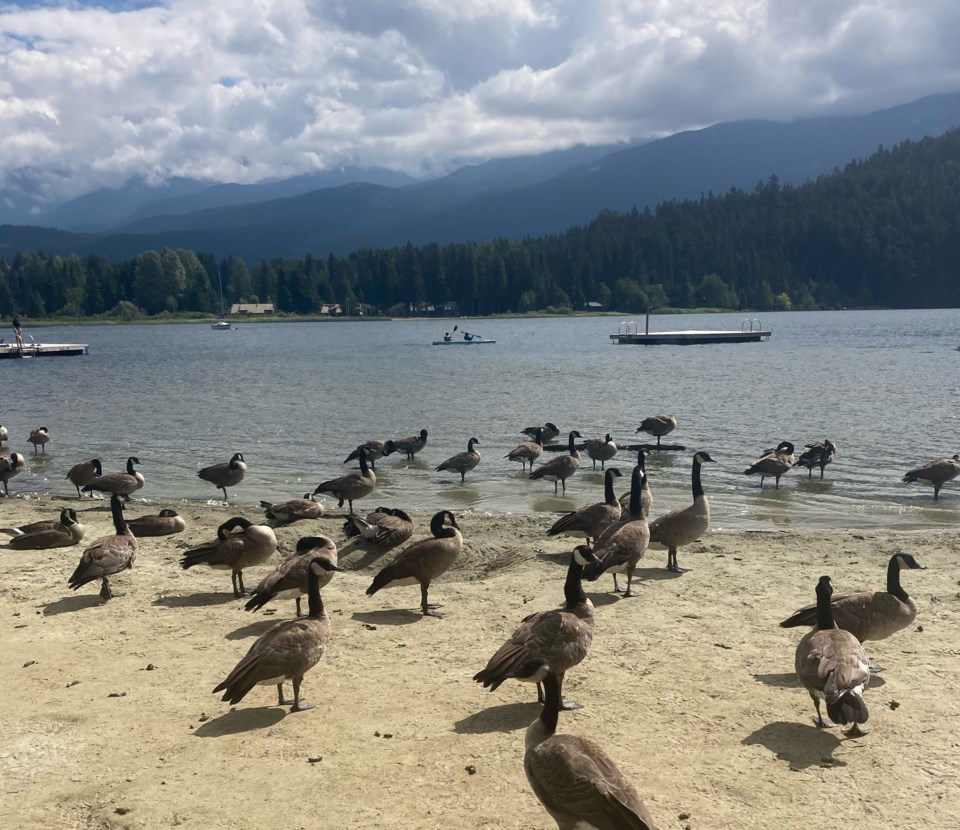Whistler's Rainbow Park beach has reopened to swimmers, according to the Resort Municipality of Whistler (RMOW).
In an Aug. 14 post on its website, the RMOW said it got the go-ahead to reopen the beach from Vancouver Coastal Health (VCH).
"Vancouver Coastal Health has tested the water at Rainbow Park beach and the coliform levels have reduced enough to allow for swimming again," the short update reads.
VCH originally directed the RMOW to close the beach on July 29, after water testing found "high levels of coliform" in the water.
In Alta Lake's case, elevated coliforms are frequently associated with goose poop. Given the large number of geese seen in Whistler, and particularly at local parks and beaches, the RMOW has a specialized "Goose Management Strategy" to help handle the herds.
The strategy is designed "to support ecosystem health by making sure there’s a suitable geese population," reads a post on the RMOW's website. "You may notice fences in our parks to discourage geese from nesting in those areas and from gathering on the lawns and beaches where they leave feces. We monitor water quality at local swimming beaches and the number of geese nests in the area."
To that end, the municipality is seeking dog-owning volunteers to help shoo them away. The dogs must be well-trained with strong recall to participate.
"Dogs must pass an assessment by a qualified trainer before joining the program. Approved dogs will receive an RMOW vest. They also have permission to be off-leash in our parks while actively participating in the program," the RMOW said.
Approved goose-chasers will be tasked with walking their dogs and hazing the geese at least three weekday mornings per week in the spring and summer.
"If you are experiencing geese problems on your property, contact [email protected] for information and tips on managing geese," the RMOW's website reads.
Coliform bacteria, often caused by fecal contamination, can lead to health issues including skin and eye irritation or gastrointestinal illness.
On its website, VCH offers some tips for swimming at public beaches:
- If showers are available, rinse off well as a precaution, paying special attention to any cuts or scrapes;
- If you believe you have been exposed to contaminated water, take a shower and wash swimsuits, towels and other clothing that might have been contaminated as soon as possible;
- If you start to feel sick, seek medical attention. Tell your doctor you may have been exposed to contaminated water, and contact your local health authority to report your illness.
Read more about VCH's water-quality monitoring program here.




